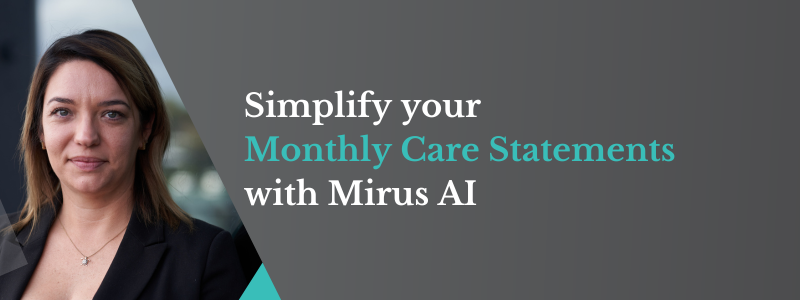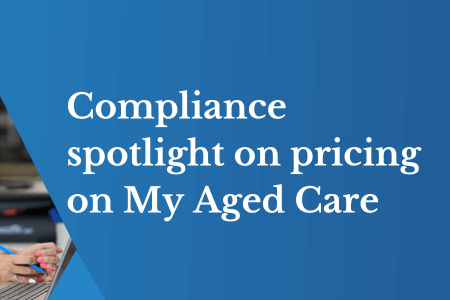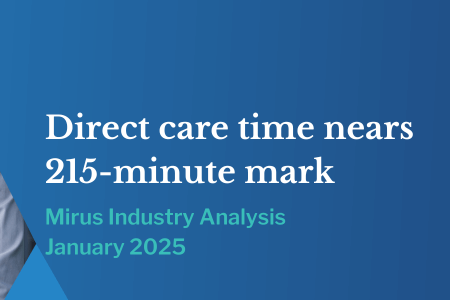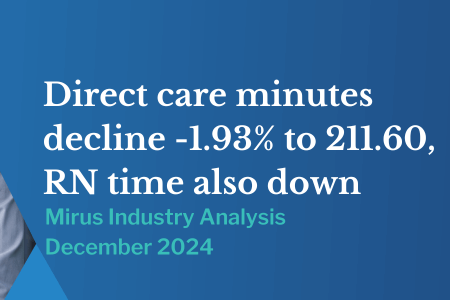Leveraging efficiency with Mirus AI for Monthly Care Statements
September 18, 2024 | AI

By Katie Airey, Quality, Risk and Compliance Lead
The Department of Health and Aged Care (DoHAC) are now encouraging all residential aged care providers to offer their residents and their representatives a monthly care statement from 1 October 2024. This voluntary period provides the perfect opportunity for providers to embed a new process prior to the statements becoming mandatory.
While the DoHAC are yet to confirm when the monthly care statements will become mandatory. Katy Roberts – Director, Resident Experience and Food Policy of the Choice and Transparency Branch has advised that the monthly care statements will not necessarily become mandatory when the Strengthened Standards come into effect and that the DoHAC will confirm when the monthly care statements will become mandatory over the coming months.
Although most providers we speak to agree that regular consistent communication would be beneficial to residents (despite the trial period having mixed views on the value), all providers we have spoken to agree that collating the information required from multiple sources (manual and systems) will be slow, difficult and costly. Artificial Intelligence (AI) offers perhaps the only practical way of bringing this information together efficiently.
The aim of the monthly care statements is to improve communication and transparency between residents and providers by including important information about the care and services each resident receives in one easy-to-read statement.
Monthly Care Statements can be provided digitally or hard copy. Residents who are receiving respite and palliative care will be exempt. The DoHAC also confirmed this process forms part of a clinical review, and therefore is an activity that will count towards RN/EN care minutes. Guidelines have been published for the sector, along with a template for providers – both are available on the DoHAC website.
What needs to be included?
There will be four specific categories that apply to all residents and some additional categories that will only apply if relevant to specific residents.
Statement Contents – all residents
- Wellbeing activities – demonstrating what physical, social, emotional, cognitive and spiritual activities the resident participated in and what their engagement entailed.
- Nutrition and weight – details regarding planned and/or unplanned changes, insights on food and drink, diet choice & and changes to preferences.
- Medication changes – information regarding any changes to medication including any new or ceased medications and dosage changes.
- Appointments – details of any hospital admissions, GP, dentist, specialists, allied health etc appointments.
Statement Contents – relevant residents:
- Summary information (diagnosis) – list of formal medical diagnosis or relevant health information
- Wound management – including pressure injuries, details regarding changes and treatment plans
- Mobility – information on any changes in mobility and/or use of mobility aids
- Falls – information on the number of falls that have occurred, and details on falls resulting in major injury
- Other relevant information – any other information about the resident that does not fit into one of the above categories. This section may contain things to discuss about the resident’s care.
These categories were refined during the Monthly Care Statement pilot that was conducted between October 2022 and November 2023. The pilot included a mixture of 37 residential aged care providers and sought feedback from both aged care services along with residents and their representatives. The findings included the following feedback:
Residents / Relatives
- Helpful to keep track of the care they received
- Useful reference point for future care planning
- Benefits in sharing statements with family for transparent communication
- Preferred monthly cadence
Aged Care services
- Automated statement generation is necessary
- Opportunity to link to existing communication (Resident of the day, other face to face communication)
- Reduce frequency
- A need for additional funding to improve IT infrastructure
- Statements should be an opt-in model
As per the feedback from providers involved in the pilot program, there are challenges in collating the required data for monthly care statements – particularly where multiple systems are utilised across the organisation. This poses significant resource challenges along with additional cost for providers.
Mirus AI is an internationally recognised and awarded solution (2024 InterSystems Healthcare Impact Award) that would prevent the need of full system transformation, minimise resource constraints and reduce overall costs, all while enabling providers to continue to use their current systems. The data infrastructure that could be implemented to solve this requirement would also provide a foundation to solve other future reporting requirements as well as provide insights across multiple areas affecting consumers today.
What to hear more about Mirus AI?


